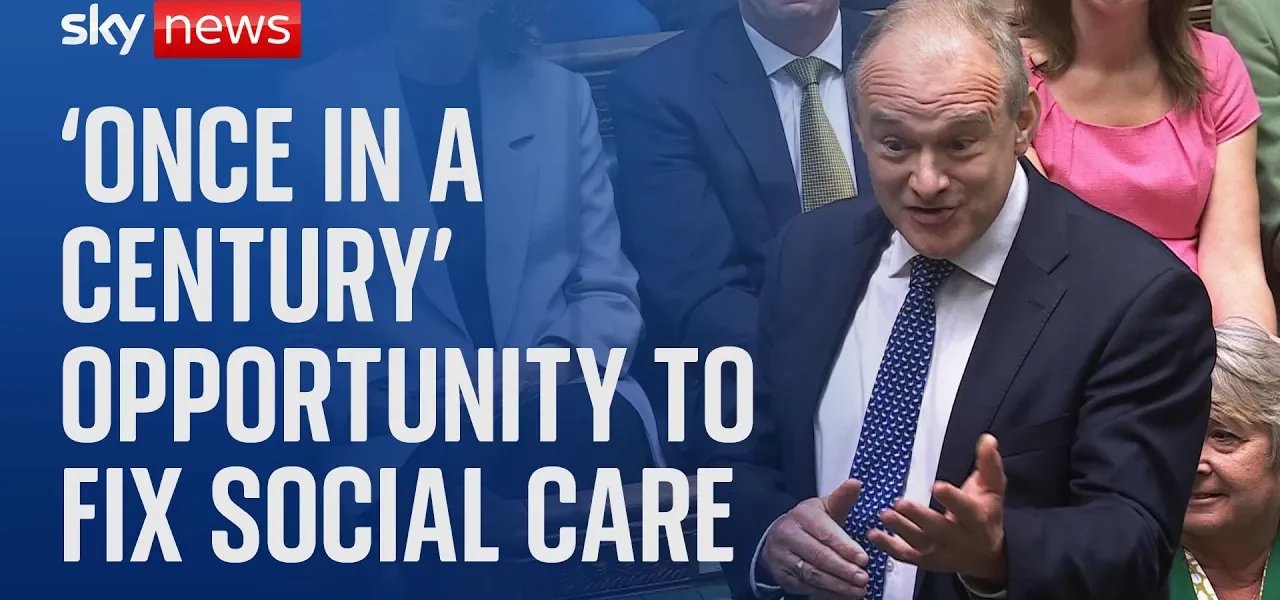Addressing Carers’ Allowance and the Social Care Crisis in Prime Minister’s Questions

This article delves into the significant issues raised during the Prime Minister’s Questions, focusing on the carers’ allowance repayments and the broader social care crisis impacting families across the nation.
Introduction
The Prime Minister’s Questions (PMQs) serve as a crucial platform for addressing pressing national issues, allowing Members of Parliament to voice concerns and seek accountability from the government. Recently, discussions centered on the challenges faced by family carers, particularly concerning the repayment of the carers’ allowance. This article explores these concerns, the implications for carers like Andrea, and the urgent need for reform in social care services.
The Carers’ Allowance Issue
One of the most pressing issues highlighted during PMQs is the scandal surrounding the repayment of carers’ allowance. Many full-time carers, like Andrea, are being penalized for earning marginally above the earnings limit, leading to crippling repayment demands from the Department for Work and Pensions (DWP).
Case Study: Andrea’s Experience
Andrea, a full-time carer for her elderly mother, returned to part-time work to support her mental health. Despite earning less than £7,000 a year, she was hit with a bill of £4,600 from the DWP, illustrating the financial strain on family carers.
The Wider Impact on Carers
Andrea’s situation is not isolated; it reflects a broader trend affecting tens of thousands of carers across the country. Key points include:
- Many family carers are forced to make difficult choices between work and care responsibilities.
- The repayment policy disproportionately affects those who are already financially vulnerable.
- Carers provide invaluable services, saving taxpayers an estimated £162 billion annually.
The Social Care Crisis
In addition to the issues surrounding carers’ allowance, the Prime Minister acknowledged a more significant crisis in social care. This crisis has persisted for decades and continues to impact the well-being of millions of citizens.
The Need for Comprehensive Reform
The discussion during PMQs indicated a pressing need for a comprehensive approach to reforming social care services. Key recommendations include:
- Establishing a cross-party commission to address social care challenges.
- Creating a national care service to ensure equitable access to care for all citizens.
- Implementing a fair play agreement for carers and care workers.
Opportunities for Collaboration
Addressing the social care crisis offers a unique opportunity for the government to collaborate across party lines. By working together, lawmakers can create effective solutions that benefit both the care sector and the National Health Service (NHS).
The Path Forward
As the Prime Minister acknowledged, the government is facing multiple crises, including failures in social care. The need for action is urgent, and there is a clear mandate for reform from both the public and elected officials.
Engagement with Stakeholders
To effectively tackle these issues, it is essential to engage with stakeholders, including:
- Family carers and organizations that represent them.
- Health and social care professionals.
- Community leaders and local authorities.
Implementing Change
While the task is daunting, the Prime Minister expressed a willingness to work collaboratively to begin the first steps toward establishing a national care service. This commitment could mark a significant turning point in addressing the challenges faced by millions in the care sector.
Conclusion
The discussions in the recent Prime Minister’s Questions reflect urgent issues regarding carers’ allowance and the broader social care crisis. The experiences of individuals like Andrea highlight the need for immediate reform. By advocating for a national care service and engaging in cross-party dialogue, there is potential for significant progress in addressing these critical challenges. We encourage all readers to stay informed and engaged with these pressing matters, as the future of social care depends on collective action.
“`




